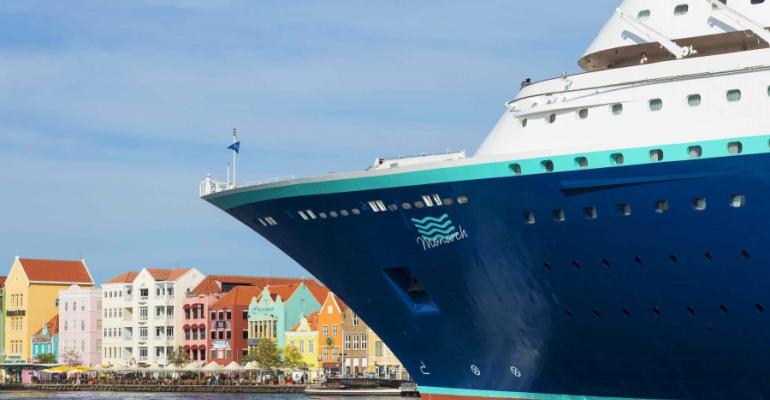At Thursday morning's opening session of the International Cruise Summit executives from Pullmantur, Norwegian Cruise Line, Thomson Cruises and Carnival Cruise Line joined the chairs of two regional port associations to discuss opportunities and threats to Europe's future growth.
Whilst all agreed Europe has achieved a positive growth trend in the past three decades, cruising in the region is slowing down due to redeployment of ships to Asia and the Caribbean, and ongoing geopolitical issues are putting increasing capacity overload in the western Mediterranean as Egypt, Israel, Syria and Tunisia remain off-limits. Port infrastructure continues to be of concern to big ship operators.
'With 35-plus new, large ships coming on stream in the coming five years the lines are sharply focussing on where to put these ships,' said Carnival's Carlos Torres de Navarra, vp commercial port operations. 'We cannot only rely on ports to develop berths and terminals as the infrastructure is not coming quick enough to satisfy our needs,' he added, referencing recent announcements by Royal Caribbean (in Miami) and Carnival Corp (in Barcelona) committing to new terminal investments. The latter, he said, shows Carnival is fully committed to Europe.
Helen Caron, md Thomson Cruises, still sees growth potential in the Mediterranean 'which is why we are deploying a new, larger ship, Thomson Discovery, in the region next year.' However, she warned, the western Mediterranean is getting increasingly saturated, particularly in the shoulder months, due to geopolitical issues in the eastern Mediterranean. She said the new Thomson homeporting operation out of Dubronvik last summer was 'very successful' and the line will continue to study future homeporting options beyond the established ones.
Speaking for the 100-plus port member association MedCruise, president Carla Salvadó expressed optimism regarding Mediterranean cruising in 2016. Even with more ships going to Asia, MedCruise expects an increase in passengers next year. She also referred to China both as a threat and an opportunity.
'As more Chinese sail on cruises in their own region, they will want to come and see Europe in the future and what better way than on a cruise ship?' Salvadó said. To capitalise on this MedCruise is working on a communication plan to promote Mediterranean cruising to Chinese consumers.
With Norwegian Cruise Line becoming the latest brand to announce a ship for China, Francis Riley, svp international sales and marketing, Norwegian Cruise Line Holdings, said 'Europe is still a key market for us.'
On the port side, Mick McCarthy, chair of Cruise Europe, spoke of challenges facing his 120 members including the supply of LNG bunkers for ships that will be coming on stream in the near future, return on investment for infrastructure expansion and the exit of ships to China.
McCarthy spoke of ports so far being largely alone in promoting cruising and lamented that tourism authorities have been less visible. 'We need to ensure cruising is brought higher up the tourism agenda,' he said.
Caron pointed out that in the Thomson homeport of Palma 20% of passengers joining the ships stay for a seven-night land holiday pre- or post-cruise, which shows the broader contribution cruising brings to the destination.
Riley noted of the many Europeans joining NCL ships on a fly-cruise, more than 20% book at least a one night hotel stay before or after.
Whilst the Mediterranean has lost ships to Asia and the Caribbean in the last two years, it will gain ships being redeployed from Latin America, where a 30% to 40% devaluation of local currencies and the slowdown in Brazil's economy has shrunk the number of ships sailing seasonally out of Brazil and Argentina. From 22 ships four years ago, there are eight this year and will be fewer in 2016/17, according to Jorge Vilches, president and ceo of Pullmantur.
Copyright © 2024. All rights reserved. Seatrade, a trading name of Informa Markets (UK) Limited. Add Seatrade Cruise News to your Google News feed.


